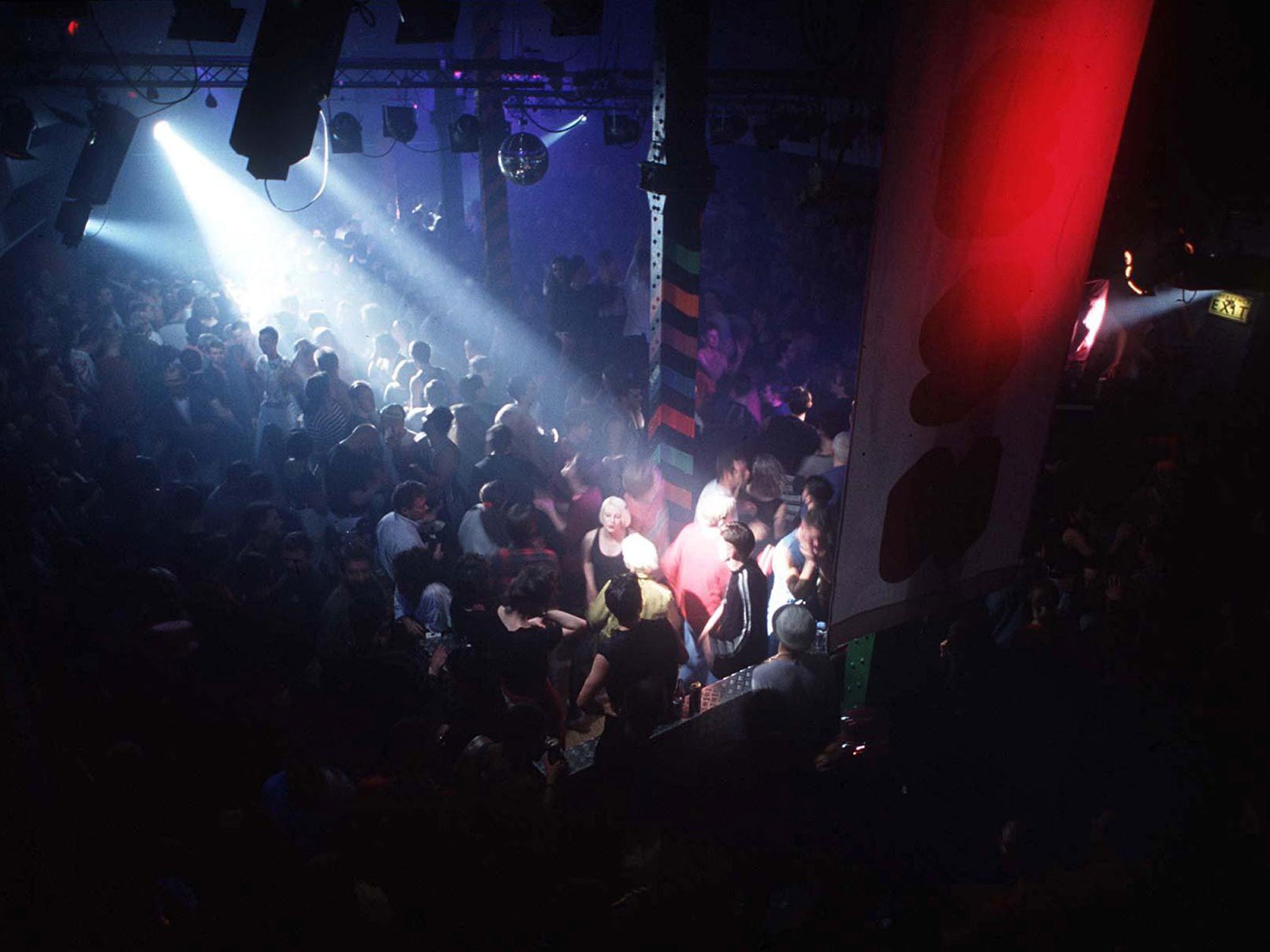Life After Dark by Dave Haslam, book review: Clubs are the backbeat of culture
This meticulously researched and insightful history offers a timely reminder of clubland's value

Your support helps us to tell the story
From reproductive rights to climate change to Big Tech, The Independent is on the ground when the story is developing. Whether it's investigating the financials of Elon Musk's pro-Trump PAC or producing our latest documentary, 'The A Word', which shines a light on the American women fighting for reproductive rights, we know how important it is to parse out the facts from the messaging.
At such a critical moment in US history, we need reporters on the ground. Your donation allows us to keep sending journalists to speak to both sides of the story.
The Independent is trusted by Americans across the entire political spectrum. And unlike many other quality news outlets, we choose not to lock Americans out of our reporting and analysis with paywalls. We believe quality journalism should be available to everyone, paid for by those who can afford it.
Your support makes all the difference.These are strange times for our nightclubs and music venues. Three years after Danny Boyle acknowledged their role in British life by putting a rave in the Olympic opening ceremony, we have a new wave of superstar DJs led by Calvin "£40m-a-year" Harris, and more festivals than one can shake a glow stick at.
Yet since 2005 the number of clubs has almost halved to 1,733, with famous haunts such as Cream in Liverpool, and Madame JoJo's and Fabric in London, either closed or threatened. What can it mean?
This meticulously researched and insightful history by writer and DJ Dave Haslam offers several answers, and a timely reminder of clubland's value. Fluent and focused, Haslam shows how, since the development of modern music halls in the 19th century, these places have given birth to not only new sounds and styles, but ideas and attitudes that have influenced the wider culture.
There is testimony from clubbers, performers and promoters of course, but also, for example, Henri Matisse partying on London's Dean Street; Richard Hoggart grumbling about jukeboxes; and a young Eric Gill and Wyndham Lewis decorating a club (the Cave of the Golden Calf) run by Frida Uhl Strindberg in a warehouse on London's Heddon Street.
Each generation of clubbers tends to believe it has discovered world-changing new forms of music and bacchanalia, and each generation of journalists duly instigates a moral panic in response. When JB Priestley first heard ragtime in a Yorkshire music hall it was, he wrote, "as if we had still been living in the 19th century and then suddenly found the 20th century glaring and screaming at us… [It signified] the end of confidence and any feeling of security." This was undoubtedly true but it was also true of jazz, disco, punk, acid house and the rest.
Life After Dark is admirably national in perspective. Besides the familiar pioneers – Hammersmith Palais, UFO, the Hacienda and so on – Haslam takes us out to midlands Meccas, provincial folk nights and, at the other end of the scale, private metropolitan members clubs.
He exhibits a promoter's relish of the eccentrics who populate the industry, and a DJ's interest in how the atmosphere and layout of venues affects the music and dancing, which is fascinating. The book feels rather weighted to the last 30 years or so, but then that probably suits the most likely readership.
The state of clubbing and live music is covered in a conclusion that points out that local authorities, urban planners and the property market have effectively conspired to promote large-scale venues that suit only the likes of Tiesto and Harris. This leaves "less and less room for cheap spaces where people with ideas might gather, creativity take root, connections build – and out of all that a new world emerge."
"Behind that door," writes Haslam, "might be stimulation, intoxication, a cross-dresser, mad dancers, eye contact with your first love, enchantment, liberation and new life."
If that strikes a chord, you should read the rest of this book – it's worth staying in for, honest.
Join our commenting forum
Join thought-provoking conversations, follow other Independent readers and see their replies
Comments